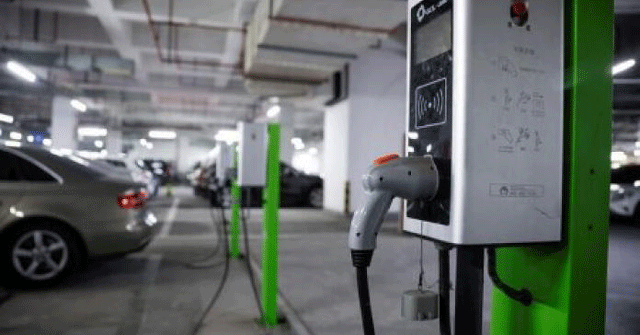
Delhi govt mandates EV adoption for online cab, fleet aggregators in draft scheme

The Delhi government has issued a draft Motor Vehicle Aggregators Scheme, 2021, which proposed the need for online passenger and commercial vehicle operators to increasingly adopt electric vehicles. Alongside laying down a proposed timeline for bringing more electric vehicles (EVs) under their wing, the draft scheme also proposed a continuous driver assessment to increase safety of services in the national capital.
According to the draft scheme, the electrification targets will apply only for new cars being brought under the ambit of operators such as Uber, Olacabs and others. Older vehicles already registered under these aggregators will, for the time being, may continue operating.
For new fleet additions, the two- and three-wheeler sectors will need at least 10 percent to be electric within six months of obtaining an aggregator licence from the Delhi government. Within one year, 25 percent of all new fleet additions should be EVs, while within two years, this number must rise up to 50 percent.

For four wheelers, meanwhile, aggregators will need 5 percent of their new additions to be EVs within six months — rising to 15 percent in one year and 25 percent in two years.
The scheme further states that any vehicle aggregator operating with fleets larger than 50 vehicles will be required to comply with its requirements. In terms of licensing, both aggregators and drivers working under them will be required to obtain licences from the Delhi government’s transport department. Each of these licences will be renewable on a yearly basis.
The scheme also incentivises EVs by removing any licence application or renewal fees for them.
Operators registered under this scheme will also be required to set up a 24-hour contact centre in Delhi, which will also need to store real-time data of all vehicles operational under them at any point. These contact centres will also be needed to share any booking related data, including passenger names, car registration numbers and driver details, with the Delhi government’s transport department at any given point in time.
In terms of monitoring drivers working under an aggregator, if a driver sees user reports filed against them for more than 15 percent of their trips in one month, the aggregator will be needed to take “appropriate action” against them. If drivers are rated below 3.5 (out of five) after one year of service, they will be put under an “observation period” of three months. Subject to no improvement of this score, the Delhi government can cancel the licence afforded to them under this scheme.
The scheme also lays down penalties for aggregators operating in Delhi, if they fail to meet any of the mentioned targets.
An Uber India spokesperson said in a statement, "We will evaluate the draft policy and share our suggestions with the Transport Department of NCT, Delhi, within the specified time period. Specifically, on electrification mandates, we believe that such a shift revolves around an organic ecosystem readiness, which includes well-developed, accessible charging infrastructure, and a pre-existing equivalent offtake of EVs at the point of purchase itself. Equitable sharing of responsibility among various stakeholders across the EV value chain, including vehicle manufacturers, shall be an important determinant of the success of the mandates."
Olacabs declined to comment.
Akash Gupta, chief executive of Zypp Electric, a commercial EV startup that supplies fleet vehicles for the likes of Amazon, Zomato and Delhivery, said that such a scheme was already expected in the industry. The startup expects its demands to rise 6x in the next financial year as a result, and also expects more state governments to adopt such policies.
